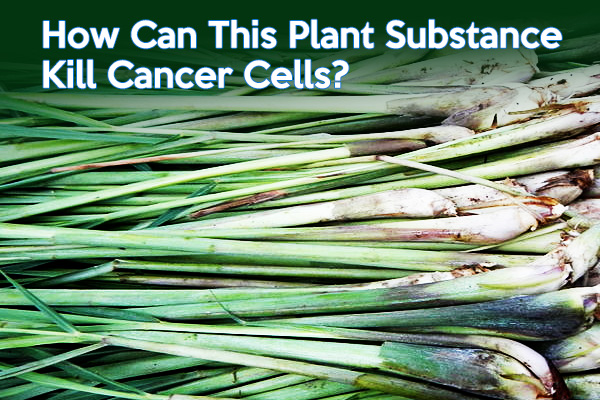What is apoptosis? Let me share with you how plants can create a powerful reaction that can cause cancer cells to self destruct.
If there was a substance that had powerful properties which caused cancer cells to undergo apoptosis (programmed suicide), you would think it pretty remarkable.
You would also expect the medical profession to jump on this “miracle cure” and start promoting it.
Unfortunately, most of the medical profession isn’t interested in cures; it’s only interested in money. A cured patient is a disaster—the poor doctor loses his income stream. In fact the profession thinks that a patient who dies slowly and with expensive treatment is the ideal situation, but a cure is a problem.
So, we are on our own here.
So what is this wonder treatment I’m referring to?
What Is Apoptosis and How Does It Work?
It’s lemon grass; or more exactly, citral extract, which comes from lemon grass. And to be precise about this discovery, what I am saying is that Israeli researchers at Ben Gurion University (BGU) have found that one gram of lemon grass contains enough citral to prompt cancer cells to commit suicide in the test tube. It does this without harming normal cells.
The findings were published in the scientific journal Planta Medica, which highlights research on alternative and herbal remedies. Shortly afterwards, the discovery was featured in the popular Israeli press.
Citral is the key component that gives the lemony aroma and taste in several herbal plants such as lemon grass (Cymbopogon citratus), melissa (Melissa officinalis) and verbena (Verbena officinalis.)
The BGU investigators checked the influence of the citral on cancerous cells by adding them to both cancerous cells and normal cells that were grown in a petri dish. The quantity added in the concentrate was equivalent to the amount contained in a cup of regular tea using one gram of lemon herbs in hot water. While the citral killed the cancerous cells, the normal cells remained unharmed.
As they learned of the BGU findings in the press, many physicians in Israel began to believe that while the research certainly needed to be explored further, in the meantime it would be advisable for their patients, who were looking for any possible tool to fight their condition, to try to harness the cancer-destroying properties of citral.
The best way to consume the citral and create apopis to put the loose lemon grass in hot water, and drink about eight glasses each day.
However don’t go crazy and assume it’s a done deal. Science is rarely that easy!

One study I found suggested citral might cause cancer, lymphoma, in female mice fed citral in their food.
Looks like citral might cause cancer (lymphoma) in female mice fed citral in their food.
Citral was nominated by the National Cancer Institute for study because of its widespread use in foods, beverages, cosmetics, and other consumer products and its structure as a representative beta-substituted vinyl aldehyde.
Citral is used primarily as lemon flavoring in foods, beverages, and candies. It is also used as a lemon fragrance in detergents, perfumes, and other toiletries.
Male and female rats exposed to significant doses of citral exhibited listlessness, hunched posture, absent or slow paw reflex, and dull eyes. But there was no increased incidence of any cancers.
However, the incidences of malignant lymphoma in female mice exposed to citral at 2,000 ppm was significantly greater than that in the vehicle control group. Tissues most commonly affected by malignant lymphoma were the spleen, mesenteric lymph node, thymus, and, to a lesser extent, the ovary.
The researchers described this incidence of lymphoma in mice as “equivocal” evidence of cancer-causing properties. If the testing was done properly, it should not, in my view, be dismissed as equivocal. It would be grounds for further research.
For you (reader), it depends if you want to go with the rats or the mice!
The post What is Apoptosis and Can This Plant Substance Kill Cancer Cells? appeared first on Dr. Keith Scott-Mumby.
